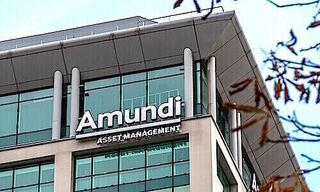CEO Sergio Ermotti has to sharply cut spending to make sure the costs from the Credit Suisse acquisition don't get out of control. Iqbal Khan, on the other hand, has a free hand to grow the wealth management business.
5 to 18 – that is the ratio of Credit Suisse executives to UBS ones in the combined wealth management business under head Iqbal Khan.
It might not sound like much but it is practically a merger of equals when you compare it to what is happening at the group level. There the ratio is 1 to 16, with only former Credit Suisse head Ulrich Koerner making it into top management.
No Experiments
At an industry conference recently, Ermotti declared that the decision was due to his own calculation of the risks involved.
In April, he indicated that Credit Suisse and UBS bankers had the same opportunities in the combined entity but that he didn't want to undertake any experiments when it came to those who worked directly with him. Given that, former top leaders at Credit Suisse such as André Helfenstein or Francesca McDonagh have clearly been relegated to positions managing the newly created units resulting from the forced acquisition.
Meanwhile, Kahn is meeting incoming Credit Suisse executives with open arms. «I want to welcome our Credit Suisse colleagues to Global Wealth Management and share my optimism and pride when it comes to our future together», indicates an internal UBS memo on Monday provided to finews.com.
Billions in Cuts
The message has some context to it. With the takeover, UBS has managed to buy into growth that would have taken between eight to ten years in the private banking business. Given wealth management is a people's business, a service business, he needs more client advisors for more volume and he is relying on the Credit Suisse bankers for that in order to achieve his targeted goal of $5 trillion in client assets.
But his job is a whole lot easier than Ermotti's, who is responsible for the overall integration. He has to downsize Credit Suisse's investment bank and save $8 billion in costs by 2027, of which $6 billion will be personnel costs. There are estimates out there saying that the synergies in Switzerland alone will result in 12,000 job cuts.
«Toughest Part»
But Ermotti has been clear about things. From the outset, he emphasized that it was a takeover and not a merger and that the job cuts would be the «toughest part of the task». When looking closely at what both are saying in public, Ermotti is clearly playing bad cop alongside Khan's good cop.
It is probably something that works for both of them. In Asia, Global Wealth Management is now clearly the region's largest private bank with more than 1,200 bankers. That is also the case in Latin America, the Middle East, and Europe.
The fact that it has become such a powerhouse is putting the chill on many of its competitors. According to information from certain sources, the GWM business has hired 30 percent more senior executives than it did just a year earlier. And these freshly minted executive directors and managing directors are from different regions and institutes.
The situation in Switzerland, however, looks a great deal more shaky. Here UBS wants to evaluate all the options it has for Credit Suisse's domestic business before making a decision. But the conditions look largely the same. In order to grow, the bank has to keep as many Credit Suisse relationship managers as possible and shorten the period of uncertainty as much as possible.
Home for Hatecke
UBS has made a first step in that direction by appointing August Hatecke as the new head of Swiss private banking. It is something that is apt to help Khan keep all the balls in play right now. He has to keep Credit Suisse bankers and clients on board while trying to recover some of the asset outflows.
He also has turbulent financial markets to contend with. And he has to keep all this going until the integration is fully complete, or for the next four years. Failure would exact a high price – although it shouldn't be forgotten that UBS made sure it had ample buffers in place as a pre-condition for the deal.
Given that, some analysts are indicating that the takeover would be a successful one even if Credit Suisse lost half of all its client assets.
Hidden Hand
The next few months will show how Credit Suisse clients will react and whether they are willing to go with the new, larger combined UBS entity. If the trend goes his way, the 47-year-old Khan has the best cards in hand to succeed Ermotti as the institution's next leader.
In 2027, when the integration is expected to end, Ermotti will turn 67 and that would likely signal the end of his second career as CEO at UBS. But as he himself said recently. If you are already thinking about what you are going to do next, you have already basically resigned.



























